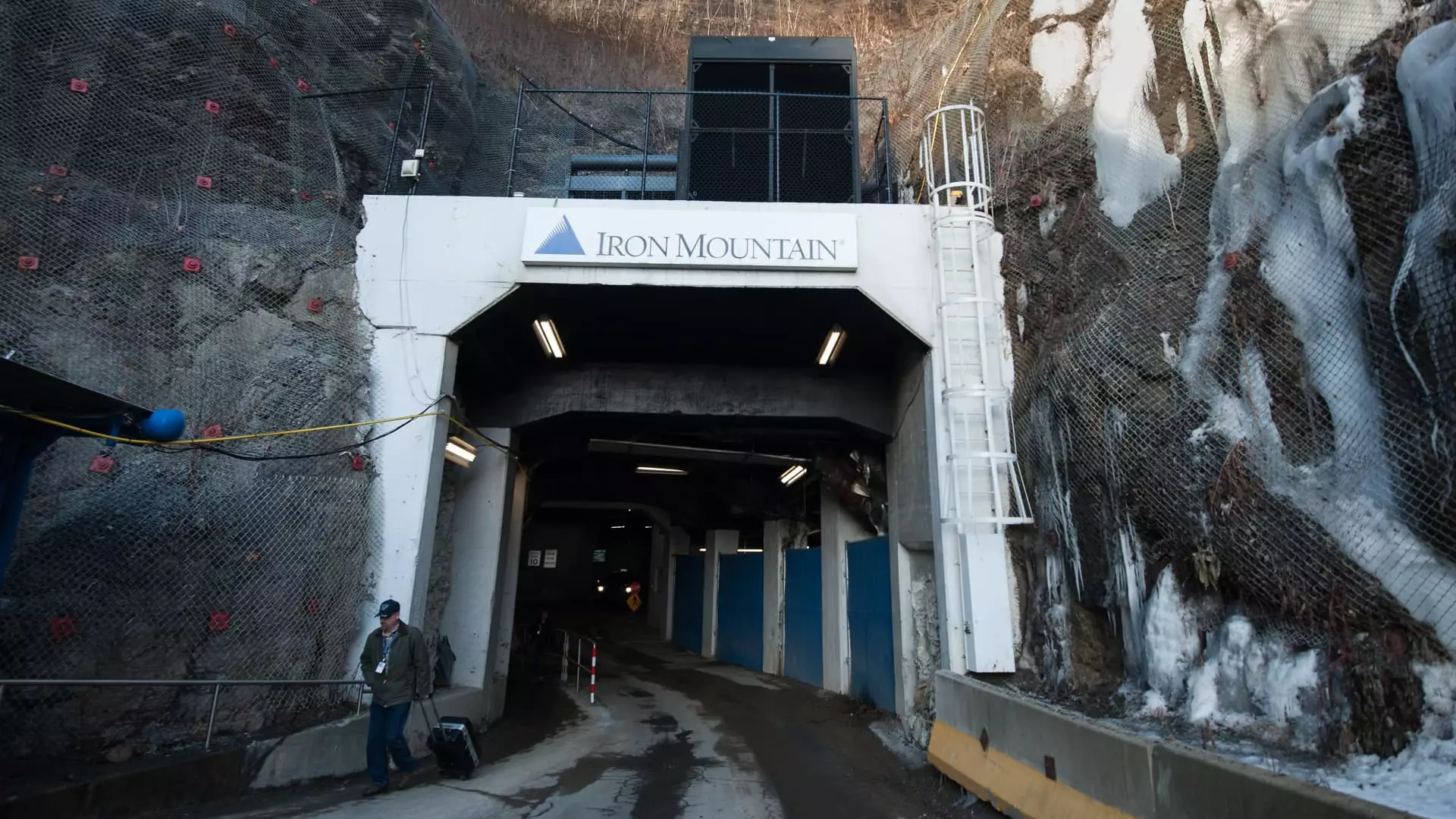In an age where efficiency is revered, and government departments often come under scrutiny, the recent comments made by Elon Musk during his meeting with former President Donald Trump have sparked discussions regarding federal efficiency and the complexities involved in it. Musk’s remarks about the Department of Government Efficiency (DOGE) and the peculiarities of utilizing a limestone mine for retirement paperwork processing not only drew attention to inefficiencies but also raised questions about the future of government contracts, specifically with companies like Iron Mountain.
Musk painted a vivid picture of a limestone mine in Pennsylvania that is used for storing retirement paperwork, describing it as reminiscent of the 1950s. This imagery underscores the notion that certain government processes are outdated, stuck in a time warp, where slow elevator speeds directly impact the efficiency of handling retirement applications. The mine, run by Iron Mountain, presents a curious case of how government bureaucracy can result in seemingly archaic solutions to modern problems. Musk’s assertion that it can only process up to 10,000 retirement applications per month underscores a clearly antiquated system that seems to lag behind the technological advancements available today.
Although the mine is touted for its security, offering unprecedented protection against disasters, one cannot help but question whether such measures are absolutely necessary for a practice that should have evolved long ago. As Musk pointed out, it raises the question: should 700 employees really be hauling manila envelopes underground? There lies a dichotomy between safety and efficiency, casting a harsh light on how taxpayer money is being utilized.
Following Musk’s sharp critique, Iron Mountain’s stock experienced notable fluctuations, signaling investor concern regarding federal contracts that may come under review due to the current administration’s efficiency drive. Iron Mountain’s CEO, Bill Meaney, attempted to frame the situation positively, emphasizing opportunities for growth in the realm of digital transformation amidst Musk’s comments. He articulated how the angle of digitizing documentation could align with government efforts to ameliorate efficiency.
Interestingly, while Iron Mountain generates a mere $10 million from government documentation storage, it rakes in a substantial $130 million from data centers and other digitization services. This disparity highlights a fundamental issue: is the focus on physical record-keeping a misuse of resources when digital alternatives exist? Investors appear skeptical, as evidenced by the stock decline following Musk’s remarks, suggesting a growing sentiment that old practices must adapt or be phased out.
Musk’s comments, coupled with the establishment of DOGE, spotlight a broader trend of scrutinizing governmental efficacy, particularly amid Trump’s focus on reducing wasteful spending. The presence of agencies like DOGE becomes significant as they seek to identify areas ripe for reform. However, it’s essential to recognize that these conversations aren’t isolated. They reflect a national concern about how government dollars are spent and whether taxpayers are receiving optimal service.
Additionally, Musk’s comments challenge the status quo of government contracting, particularly for companies like Iron Mountain, which may face more stringent requirements or efforts to cut back on specific services that do not align with a more agile bureaucratic structure. Investors must contemplate the implications of these changes as they unfold, particularly in light of Wall Street’s interpretation that reactions to Musk’s critiques may be overblown, as mentioned by analysts from firms like Wells Fargo and Barclays.
Moving forward, the discussions initiated by Musk could catalyze a much-needed movement toward embracing technological advancements in government operations. The concept of efficiency should not only focus on immediate cost-cutting; it should also revolve around adopting innovative solutions that can streamline processes. The potential benefits of digital transformation can lead to better service for citizens, reduced wasteful spending, and ultimately, a government that operates cohesively with the capabilities of modern technology.
Additionally, as stakeholders ponder the viability of contracts like the one with Iron Mountain, it will be imperative for companies to align themselves with evolving governmental strategies. Iron Mountain’s initiatives underlined by Meaney suggest that some firms are already adapting, but the question remains—how prepared are they to pivot in an environment that is increasingly intolerant of inefficiency?
In essence, Elon Musk’s comments regarding government inefficiencies serve as a clarion call for reassessing not only specific practices but also the foundational principles that guide governmental functionality. As the data revolution continues to shape industries worldwide, the federal landscape must also adapt, ensuring its processes are not only safe but ultimately effective. The stakes are high, and the time for change is now.

